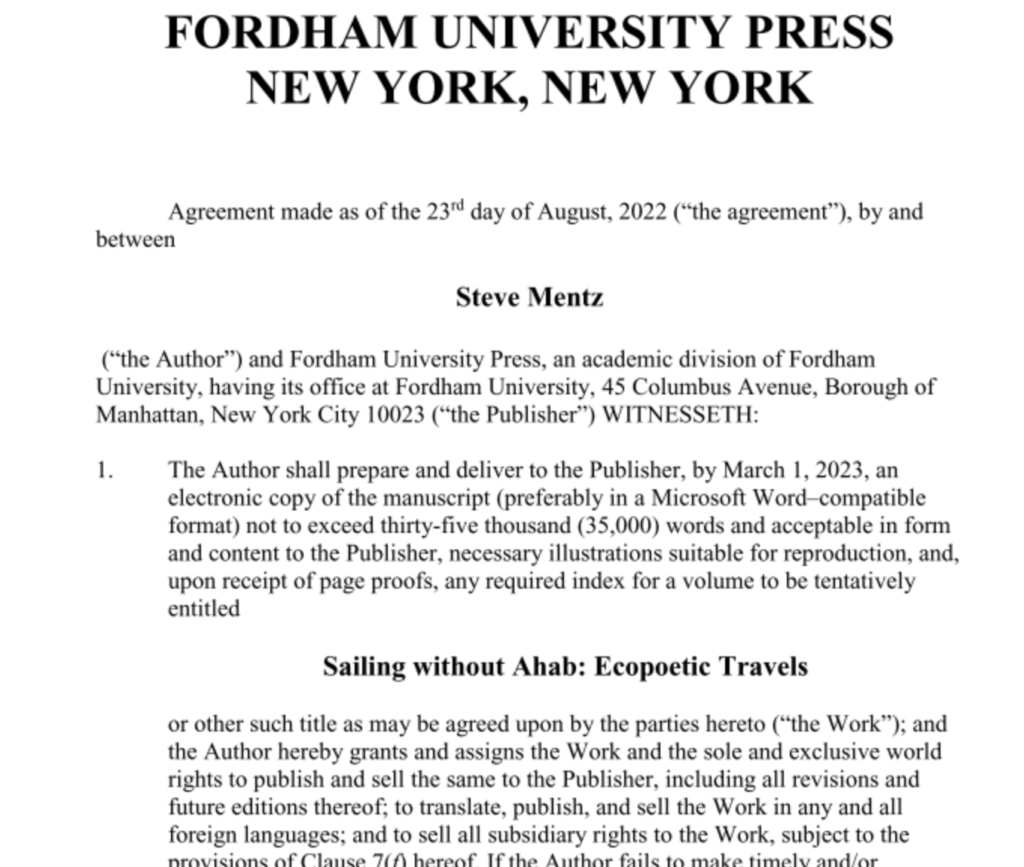The idea swam up from the depths maybe a half-dozen years ago – what if the Pequod set sail without her Captain? Do we really need that bad old man, dismasted and enraged, at the helm? Might freedom, in fact, be something else entirely?

The notion crept into my imagination and wouldn’t go away. So I niggled around with it a bit. I published two smalls sets of poems with the Glasgow Review of Books. The first in April 2017, included a title poem for the project, “Sailing without Ahab.” The second, in May 2018, included “Great White Evil God,” which thrashes around with the whiteness of the whale. By this time I had found the shape, a mad swimalong quest that would follow the crew from Etymology to Epilogue, Loomings to the third day’s Chase. A poem for every chapter, none of them boasting any Captain. It was a lot of poems. My voyage was slow.
Many things shattered into new shapes in spring 2020, and as I adapted to being shut in, I found in writing poetry my pandemic sourdough. The dam burst right around the time we brought a new puppy into our home, the irrepressible Blue, whose company gave me lots of pre-dawn walks to the water and quiet time in the house, even after Covid restrictions boomeranged my son back into our basement. I suppose it was around this time that I started my daily waterpic Insta practice, too, for anyone who’s keeping score.
The poetic rhythms that clicked into place in 2020 have since led me to start sending poems out to literary magazines, and I’ve published a half-dozen or so in these semi-post-pandemic years. Sailing without Ahab also came out of that burst of creativity, and I’m so pleased to be working with the great Richard Morrison and Fordham UP for this project.

The book will have lots of parts – a mad sailalong with the crew of the Pequod, an experiment in creative-critical writing, a form of maniacal close reading, an oblique extension of blue humanities ideas and practices. But at its center is a surging, wallowing, breeching mass of poems, one hundred and thirty-eight in total, one for each chapter of Melville’s oceanic epic, including the Etymology, Abstracts, and Epilogue.
I hope you’ll join me for the voyage in spring 2024!